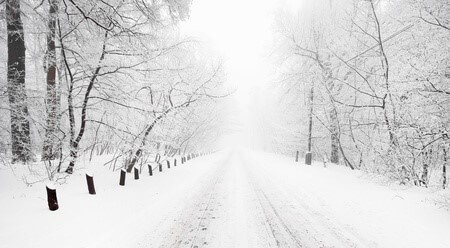New drivers are at an increased risk of accidents in winter weather because they may not have the experience needed to successfully avoid ice- and snow-related accidents. At the same time, winter hazards increase accidents during cold weather for all drivers. By following these five tips for new drivers, you can reduce your risk of an accident this winter.

1. Slow down.
In 2014, speeding caused 18 fatalities in Alaska alone, according to the National Highway Traffic Safety Administration (NHTSA). This is almost 25 percent of the 73 accidents reported by the Alaska Department of Transportation.
Obeying the speed limit is always of utmost importance, but when winter weather hits and roads are slick, it is even more imperative to slow down and make extra room between your car and others. This is especially true for new drivers who are not experienced in driving in wintry conditions.
2. Do not drive distracted.
Young drivers may be more prone to answering a text while driving than their older counterparts, according to the NHTSA. Texting and driving is dangerous in any situation but can be even more deadly when you factor in black ice, snow, and animals that can streak across the road at any second.
3. Watch out for animals.
Every year, about 400 people collide with moose in Anchorage and the Mat-Su Valley alone. Other large animals call Alaska home, as well, including bison, caribou, and bears. These animals cause extensive property damage and numerous fatalities each year.
The months of December, January, and February bring the most wildlife-related crashes, because animals often walk on plowed roads to avoid snowdrifts. Staying aware of your surroundings at all times and watching the sides of the road for any sign of wildlife can help you avoid this type of accident.
4. Be aware of changing road conditions.
Road conditions deteriorate quickly in Anchorage during the winter months. As temperatures drop, wet roads freeze. Snow sticks to the pavement, and traffic compacts it into ice. In a matter of a few hours, roads can go from clear to slick and dangerous. By checking the weather before you travel and keeping an eye on road conditions, you can ensure you are home before things become treacherous.
5. Be prepared.
While avoiding an accident is the best bet, do not overlook the importance of being prepared for one. Whether you break down or crash, having an emergency kit in your car can make the difference between staying warm and safe or suffering from hypothermia and potentially sustaining fatal injuries.
Traveling with a fully charged cell phone, a first aid kit, and winter supplies such as a blanket, water, and snacks can help you survive until help arrives. It is also a good idea to let someone know your destination and estimated time of arrival, and then call them when you get there.
Kelley & Canterbury LLC
Taking the right precautions can prevent many weather-related auto accidents. However, if another driver is careless, you could still find yourself injured in a winter crash. The car accident attorneys at Kelley & Canterbury LLC can help you recover the compensation you need to cover your medical bills and other losses stemming from an accident caused by a negligent driver in Anchorage, Alaska.
Contact us today at (888) 639-4817 to schedule an appointment.
The post Winter Driving Tips for New Drivers appeared first on Kelley & Canterbury, LLC.

